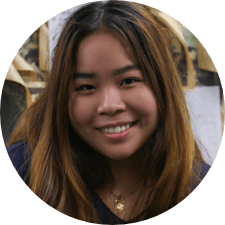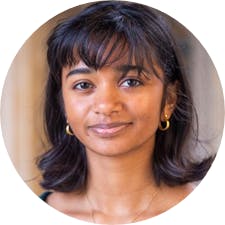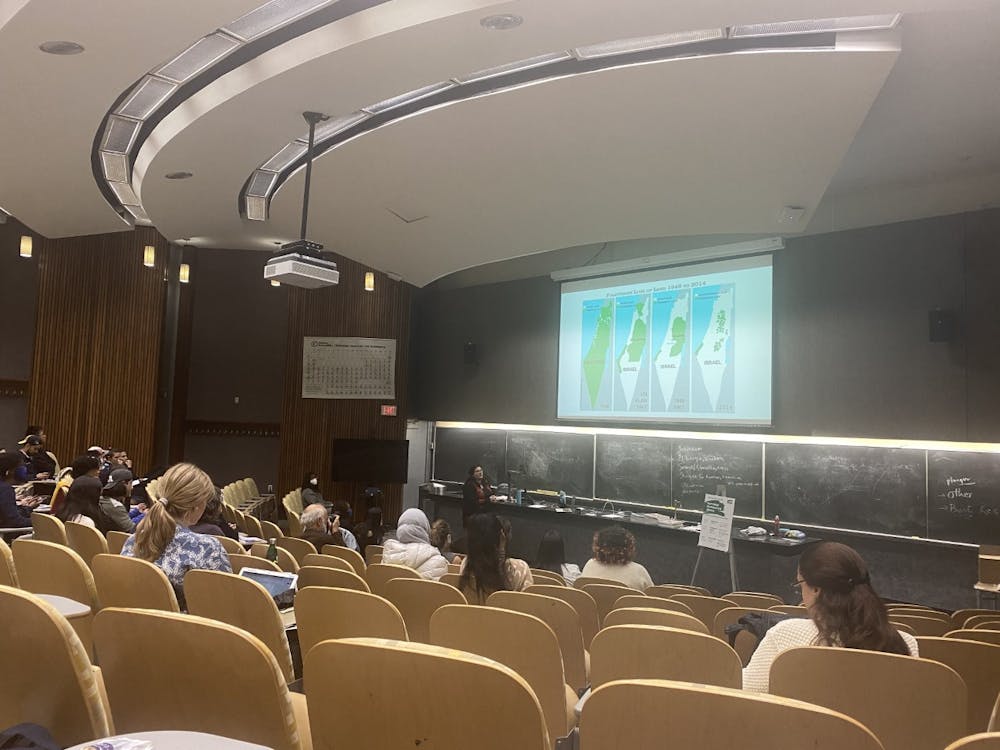Duke Students for Justice in Palestine and the Duke Arab Students Organization co-hosted a series of speaker events from March 29 to 31 for Israeli Apartheid Week.
Titled “Narrating Resistance & Agency: Shifting the Discourse on Palestine,” the series featured Dana Alhasan, a local community organizer; Alaa Hammouda, a peace fellow at the Duke-UNC Rotary Peace Center, Ahmed Shihab-Eldin, a journalist and producer; and writer Mohammed El-Kurd.
“Palestine 101” frames Palestine’s history through a “settler-colonial perspective”
The first talk, titled “Palestine 101” and led by Alhasan, charted Palestine’s history and “the loss of Palestinian land over time” through a “settler-colonial perspective.”
Alhasan explained that whenever a student asks her about Israel, she responds, “Israel began when Britain, as a colonial imperial power, gave land to Israel that did not belong to Britain, nor to Israel, and in doing so stripped the Palestinians right to self-governance and self-determination—and since that day, Israel continues to colonize the remainder of Palestine.”
She compared Zionism to manifest destiny, as she claimed both used religion to justify “settler-colonial projects” in which “God is a real estate agent who gave the authority to white people to have any land they want at the expense of the indigenous people.”
Alhasan then presented a quote from Palestinian author Ghassan Kanafani: “They steal your bread and give you a crumb of it. Then they demand you to thank them for their generosity. O their audacity!” She said that this quote resonates with Palestinians who are led to believe that their calls for land are excessive.
“We’re hardly asking for anything. We’re asking for our land back and you didn’t give that to us. You literally gave us crumbs,” Alhasan said. “Remember that settler-colonialism is about land. We’re asking for our land, it is our land. It’s where we live and we deserve to be back in our land. And we will be back.”
Alhasan then described conditions in present-day Palestine, including Israel’s ID system for Palestinians and its family unification denials, which she deemed a “form of psychological warfare” by way of the “separation of families and loved ones and denial of marriage.”
“Permission to Narrate” event highlights role of media in Israel-Palestine conflict
Hammouda, a peace fellow at the Duke-UNC Rotary Peace Center, opened the second event in the series, “Permission to Narrate.” She spoke with Emmy-nominated journalist Shihab-Eldin about navigating careers in journalism as people of Palestinian descent.
Hammouda asked Shihab-Eldin to share his perspective on the media’s censorship of the Israeli-Palestinian conflict.
Shihab-Eldin has worked for several mainstream news organizations, including The New York Times and Vice, and said he felt strongly censored when he covered events related to the conflict. He recalled going to the West Bank to film a documentary for Vice and witnessing a mother and her children being forcibly evicted from their home by settlers who claimed the property was a Jewish synagogue.
“They were throwing this boy out of the house, over the fence; they had locked up the mother, the mother's banging on the door—we're filming all this,” Shibab-Eldin said.
Shihab-Eldin planned to use this scene for the documentary’s introduction. However, the final cut did not include the scene at all, and instead only included a voiceover that stated there were “massive casualties on both sides” of Israel and Palestine.
“It was very clear that they were trying to erase the disproportionate power dynamic, which I think is the most essential part of the context that you need to better understand the reality,” Shibab-Eldin said.
Hammouda then contrasted media coverage of the Israeli-Palestinian conflict with that of the Russia-Ukraine war. She noted the quick and widespread media coverage of the Russia-Ukraine war, but in contrast, “Palestine has been under [Israeli] occupation for decades now, and it has always been looked at as a normal situation.”
Shibab-Eldin mentioned how the Russia-Ukraine war exposed the “obscene double standards” of how resistance is characterized by media outlets. He questioned why the world was holding Russia accountable. “Is it because they’re invading and violating [Ukraine’s] sovereignty? Or is this about Western hegemony?” he asked.
“This is about geopolitics. It’s impossible not to see what's happening, even if you're not Palestinian,” Shibab-Eldin said.
He contrasted the criminalization of “any movement that tries to hold Israel accountable” with governments and social media companies currently employing boycott, divestment and sanction strategies to hold Russia accountable for their aggression.
Get The Chronicle straight to your inbox
Sign up for our weekly newsletter. Cancel at any time.
Shibab-Eldin said that this current narrative in support of Ukraine gives him hope that the “impunity” these actors have benefitted from will be exposed.
“They’re going to be made to answer for this disparity,” Eldin said. “I think that can help not just the Palestinian cause, but it can help oppressed people around the world, particularly Israel and Palestine, to find some grounding.”
“Resistance and Agency” panel features discussion of community activism
The keynote panel discussed community activism and media in the Israel-Palestine conflict.
Before the event began, students representing Students Supporting Israel passed out fliers to attendees, with photos of tweets from El-Kurd featuring alleged “hateful rhetoric filled with glaring antisemitism.”
“We welcome respectful discussion over the Israeli-Palestinian conflict, but we will not tolerate the direct targeting of the entire Jewish community,” the flier stated.
The event received pushback in early March from Duke Student Government senators when SJP first requested funding for speaker honorariums. Senators who opposed funding the event referenced some of the same tweets displayed in the flier.
El-Kurd addressed the flier and criticism directly, noting that he usually expects some backlash when he comes to speak to universities. He cited the op-ed published in The Chronicle ahead of his visit that suggested his comments target students “who have ethnic ties to the land of Israel.”
“A person who has never been on the opposite end of a rifle, tear gas, nothing—who has never experienced ethnic cleansing, who has never seen their family dragged in the streets—felt endangered by my presence,” he said.
These accusations of antisemitism, he added, addressing student activists in the audience, are from those who are “only interested in backing you into a corner, waving their finger in your face and making you defend yourself so that you look guilty in front of oncoming audiences that do not understand the cost,” El-Kurd said, referencing the flier.
Alhasan highlighted local activist groups and ongoing movements in support of Palestine, calling on activists to be “strategic, smart and organized.”
“As we sit here, Palestinians are still being kicked out of their homes, forced out of their homes. And I am a Palestinian like many of you in this room, forced to live in the diaspora and cannot return to my land, not even to visit,” Alhasan said. “But our Palestinian will and steadfastness cannot be broken.”
Shihab-Eldin emphasized the importance of “speaking truth to power.”
El-Kurd echoed this.“We should not be spineless,” he said. “Theft of homes were called evictions. Little kids getting shot in the streets was called neutralization. And all of it was perfectly legal. Which leads me to ask the question, who has the right to narrate?”

Milla Surjadi is a Trinity junior and a diversity, equity and inclusion coordinator of The Chronicle's 119th volume. She was previously editor-in-chief for Volume 118.

Preetha Ramachandran is a Trinity senior and diversity, equity and inclusion coordinator for The Chronicle's 118th volume. She was previously senior editor for Volume 117.

Katie Tan is a Trinity senior and digital strategy director of The Chronicle's 119th volume. She was previously managing editor for Volume 118.

